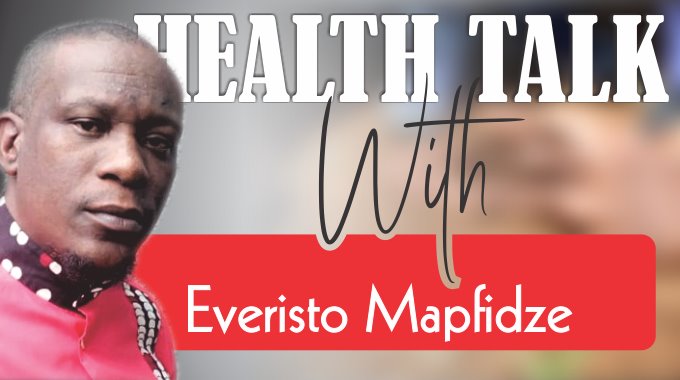
The Sunday Mail


The temptation to revisit international health declarations has become very important, particularly in the wake of the Covid-19 pandemic.
The world is experiencing the devastating impact of SARS-CoV-2 virus, which has claimed more than 200 000 lives around the world.
Today, health workers have become the unsung heroes.
The essence of health-care has become more apparent, as the whole world puts all trust and faith in health workers.
Although health workers are the backbone in the fight against coronavirus, hazardous working conditions are threatening positive health outcomes.
All along, health workers have been reporting for duty twice a week, a convenient arrangement borne out of collective bargaining.
Flexible duties were consciously adopted to cushion health workers from the country’s deteriorating socio-economic conditions.
Unfortunately, the Covid-19 pandemic has overwhelmed some health systems, and the need to have all health workers on the ground is not negotiable.
Government has since granted income tax exemptions and Covid-19 allowances to all health workers.
But this might be eroded as the cost of living continues to rise.
Dr Strive and Tsitsi Masiyiwa, through their Higher Life Foundation, have at times intervened to resolve labour disputes in the sector.
Notably, Higher Life Foundation, a philanthropic organisation founded in 1996, awarded doctors substantial amounts of monetary allowances and professional scholarships.
Despite adopting the 1986 Ottawa Charter for health promotion, health has become an arena for human rights contest in Zimbabwe.
The charter strived to achieve “health for all by the year 2000 and beyond”.
It states that, “professional and social groups and health personnel have a major responsibility to mediate between differing interests in society for the pursuit of health.”
Section 276 of the Constitution guarantees the “right to health”.
Again, under regional human rights instruments, which Zimbabwe is party to, the right to health is consistently underscored.
Zimbabwe is signatory and state party to the African Charter on Human and People’s Rights (ACHPR), wherein Article 16 expresses the right to health.
Due to shortages of basic equipment in clinics and hospitals in Zimbabwe, this right is becoming increasingly difficult to achieve.
The illegal sanctions imposed on the country have affected the provision of necessary infrastructure, equipment and resources in the health sector.
In 2018, Treasury allocated US$473,9 million, 68,1 percent higher than the US$281,98 million allocated in 2017.
However, this was not enough to meet high healthcare costs, and the allocation was further increased by another US$65 million, supplementing the initial budgetary allocation.
In countries like Zimbabwe, where HIV/Aids, malaria, tuberculosis and other communicable diseases are still rampant, more budgetary support is needed.
The 2020 budgetary allocations have significantly increased to more than 10 percent of the total budget, moving closer to the 15 percent of the total budget recommended by the Abuja Declaration.
More importantly, the budgetary measures are meant to cushion the sick and safeguard the welfare of health workers.
In the face of Covid-19 pandemic, the need for a comprehensive and sustainable healthcare system is a top priority.
Health practitioners and citizens are looking up to Government to provide social safety nets in these times of uncertainty.
American sociologist Talcott Parsons (1951) noted two obligations of the sick – that is, to get well speedily and to consult expert medical opinion.
On the other hand, doctors, too, have obligations to apply a high degree of skill and knowledge to illness.
He said “doctors must act in the welfare of the patient, not self interest, guided by rules of practice and code of conduct”.
Functionalist sociology is characterised by synergy, with each social role occupying that of a cog in the engine, and failure to fulfil the role is viewed as deviance.
Ultimately, Government and health workers have critical roles to play in achieving a wholesome health delivery system.
McKinley, in perspectives in Health 1, argues: “Doctors are themselves little more than workers in a vast industry concerned with the production of profit.”
However, it is important to appreciate health workers as socio-economic agents, with rights to fair salaries, improved work conditions and collective bargaining powers.
A balance is needed in observing the right to employment, albeit cognisant of the paramount right to health.
According to Fabiola Sulpino Vieira (2016), “economic crisis can weaken the health status of the population. The focus of the debate should always be on people, not only on expenditure.”
And preservation of social safety nets is an important measure to protect the health of vulnerable populations.
Government should sustain its obligations to public health, pensions and social services during periods of crisis, and initiate new schemes to extend health and social protection for all.
It suffices to say dialogue between the Government and health workers ought to be progressive, promoting universal health coverage.
Beyond what was envisioned in the Ottawa Charter, Zimbabwe has a constrained health system.
In fact, sanctions, corruption, climate change and the novel coronavirus pandemic have complicated an already dire situation.
As the world fights Covid-19 disease, stay home, keep social distancing and practice good hygiene.
Everisto Mapfidze is a registered general nurse who holds a Bsc Honours in Sociology (UZ). For feedback: [email protected]



